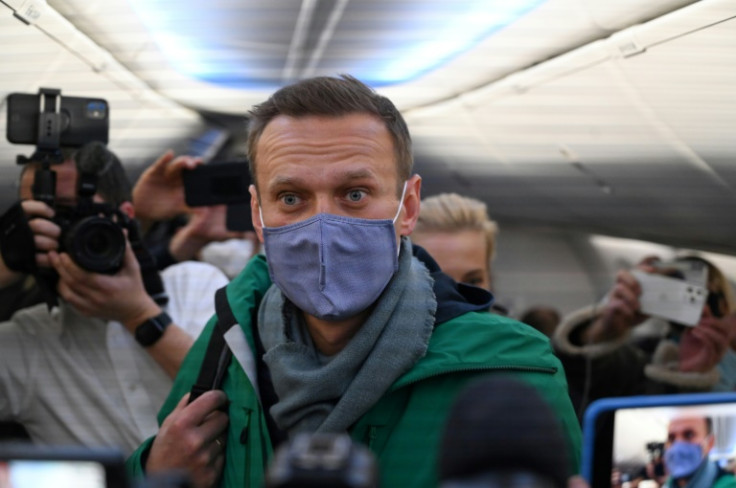'If They Kill Me It Changes Nothing': Navalny In Unreleased 2020 Interview

Alexei Navalny, the Russian opposition leader who died in prison last month, predicted in previously unpublished testimony in 2020 and released on Wednesday that his death would change "nothing" and other people would stand in his place.
"If they would kill me it changes nothing," Navalny told Jacques Maire, then a member of the Parliamentary Assembly of the Council of Europe, in December 2020, speaking in English.
In the testimony released by French daily Liberation and broadcaster LCI, Navalny said his team knew what to do without him, although he admitted things would be more "difficult".
"There are other people who are ready to stand (in) my place," he said. "There are millions of people who don't want to live in a country where the whole power is just in one (man's) hands," he added.
"It's not about me. It's about people who I represent or (am) trying to represent."
He also said the Kremlin had "never" tried to negotiate with him, adding that the Russian authorities considered him to be "radical".
Maire released the videotaped testimony with the agreement of the Parliamentary Assembly of the Council of Europe.
Navalny was interviewed by Maire on December 17, 2020 in Berlin, ahead of his return to Russia following treatment for Novichok poisoning he blamed on the Kremlin.
Upon returning to Russia in January 2021 he was arrested at the airport and jailed.
On February 16, Russian authorities said Navalny died suddenly in his Arctic prison. His supporters say the 47-year-old was murdered, possibly with the same Novichok nerve agent.
Maire served as rapporteur in the investigation of the Navalny poisoning.
Its objective was to "legally qualify the facts" and establish the responsibility of the Russian authorities, said Liberation.
Navalny told Maire he did not know if he would be arrested immediately upon his return.
"I have no idea -- would I be arrested at the airport? Maybe later... Maybe I will come and they wait until everything settles down and then will arrest me. Or maybe not. I have no idea."
He said Russian authorities wanted him to remain abroad and become "another immigrant".
Maire asked Navalny what would happen to his movement if he did not come back.
"They know how to operate without me because actually I spent a lot of time every year in prison so they are accustomed to work without me," Navalny said of his team.
"The organisation will sustain and will operate but of course it would be more difficult in terms of morale and motivation," Navalny said.
"There (are) some other people who can lead."
Navalny's wife Yulia has said she will continue her husband's cause.
Navalny said "at least half of the country want Russia to be a normal European country" and accused President Vladimir Putin of wanting to crush "this type of thoughts and political movements".
Navalny said the Russian authorities used poison against Kremlin critics because "it's terrifying."
"C'mon, even here in Europe. Now I talk to people and some European politicians say... 'I just don't want to mess with this'."
"People are afraid of such mysterious deaths," Navalny said.
"I think that's the main goal. And Putin personally enjoys the idea that people are afraid of his dark power."
In his testimony Navalny drew parallels to the role of Saudi authorities in the 2018 murder of Saudi journalist Jamal Khashoggi in Turkey.
"Everyone knows who ordered the killing of Khashoggi," he said.
Liberation quoted Maire as describing Navalny at the time of the interview as a "hyper-determined" fighter and "a block of granite".
© Copyright AFP 2024. All rights reserved.





















